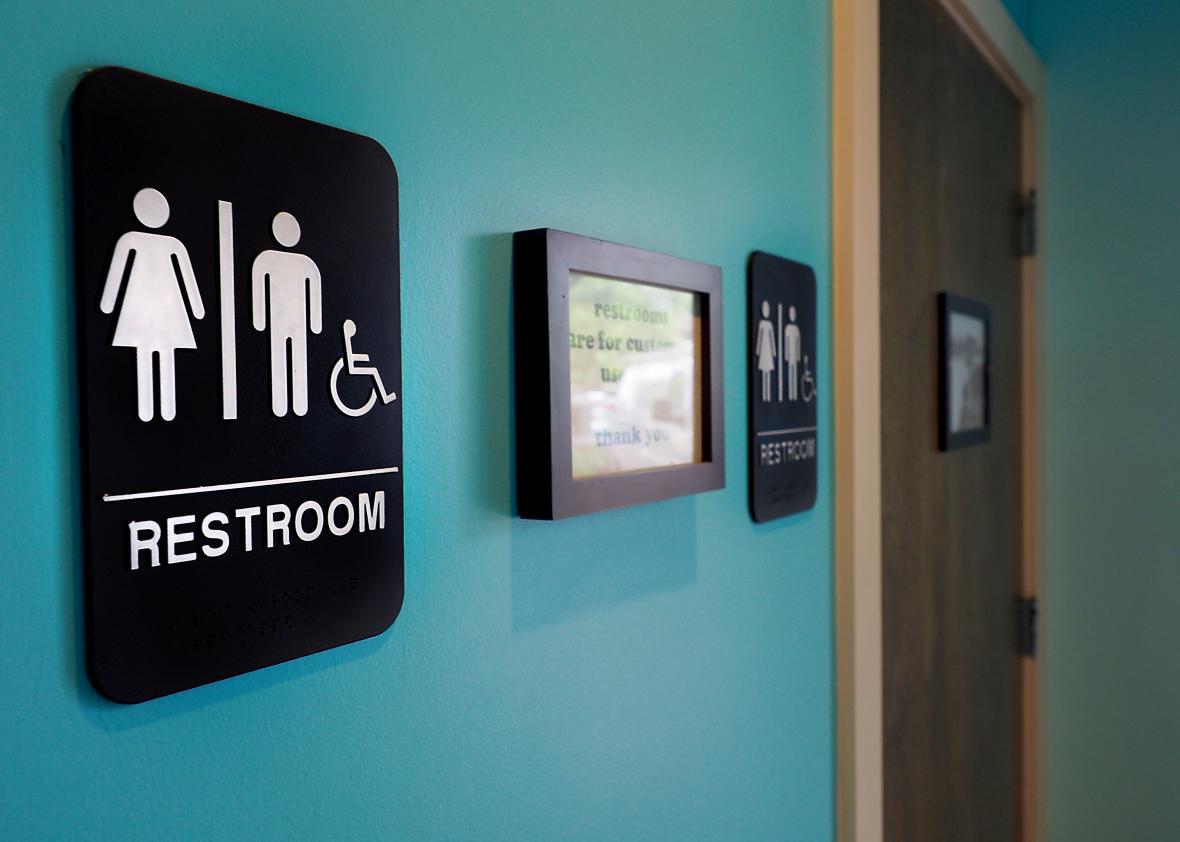The Trump administration is set to repeal protections put in place by the Obama administration that allow transgender students to use restrooms and other single-gender facilities that match their gender identities. From the Washington Post:
In a letter to the nation’s schools, administration officials plan to say they are withdrawing guidance issued by the Obama administration that found that denying transgender students the right to use the restroom of their choice violates federal prohibitions against sex discrimination, according to a draft of the letter obtained by The Washington Post.
“This interpretation has given rise to significant litigation,” states the two-page draft, which indicates that the Education and Justice departments plan to issue it jointly. The draft says administrators, parents and students have “struggled to understand and apply the statements of policy” in the Obama-era guidance.
The Post goes on to report that the letter says the reversal has no bearing on bullying and harassment protections available to transgender students. The letter will evidently be released on Wednesday, according to the Post’s source, who also says Education Secretary Betsy DeVos does not want to rescind the guidance.
The Obama administration’s policy was part of Title IX guidelines released last May, which stated that transgender students were protected by existing regulations that bar discrimination by sex for schools receiving federal funding. “The Departments treat a student’s gender identity as the student’s sex for purposes of Title IX and its implementing regulations,” a joint letter to schools from the Department of Education and the Department of Justice read. “This means that a school must not treat a transgender student differently from the way it treats other students of the same gender identity.”
On restrooms and locker rooms, the departments wrote that schools “may provide separate facilities on the basis of sex, but must allow transgender students access to such facilities consistent with their gender identity” and also that transgender students could not be forced to use single-user restrooms.
The Obama administration’s guidance is not currently in effect—a Texas U.S. district judge issued a nationwide hold on the new regulations in the fall after 13 states challenged them. Asked about the potential for a change in the guidance on Tuesday, White House press secretary Sean Spicer said that President Trump believes the use of restrooms by transgender students is “a states’ rights issue.”
USA Today reported on potential reaction from the states:
Fifteen states have explicit protections for transgender students, and many individual school districts in other states have adopted policies that recognize students on the basis of their gender identity, Sarah Warbelow, legal director of the Human Rights Campaign (HRC) told The Associated Press. Just one state, North Carolina, has enacted a law restricting students’ bathroom access to their sex at birth. But so far this year, lawmakers in more than 10 states are considering similar legislation, according to the National Conference of State Legislators.
On Feb. 13, Scott Skinner-Thompson of NYU’s School of Law wrote in Slate that the impact of a repeal of the Obama administration’s guidance may be more limited than the Trump administration realizes. “As numerous cases have already recognized,” he wrote, “the prohibitions on sex discrimination contained within federal civil rights statutes do extend to protect transgender individuals—irrespective of what the Trump administration may say about it.” This is partly because courts have found defining sex by asserted gender identity to be more legally and practically tenable than the alternatives:
[A]s the 4th Circuit Court of Appeals concluded in its decision to, in effect, permit Gavin Grimm, a transgender boy, to use the boys’ restrooms (a decision that is now being considered by the Supreme Court), the alternative interpretation of sex as “biological sex” offered by those opposing transgender access creates more ambiguity than it resolves. As the 4th Circuit reasoned: “For example, which restroom would a transgender individual who had undergone sex-reassignment surgery use? What about an intersex individual? What about an individual born with X-X-Y sex chromosomes? What about an individual who lost external genitalia in an accident?” An interpretation of sex that looks to an individual’s gender identity “resolves ambiguity by providing that in the case of a transgender individual using a sex-segregated facility, the individual’s sex as male or female is to be generally determined by reference to the student’s gender identity.” In other words, defining sex in terms of gender identity is the only interpretation that actually avoids inconsistencies and creates a uniform rule.
